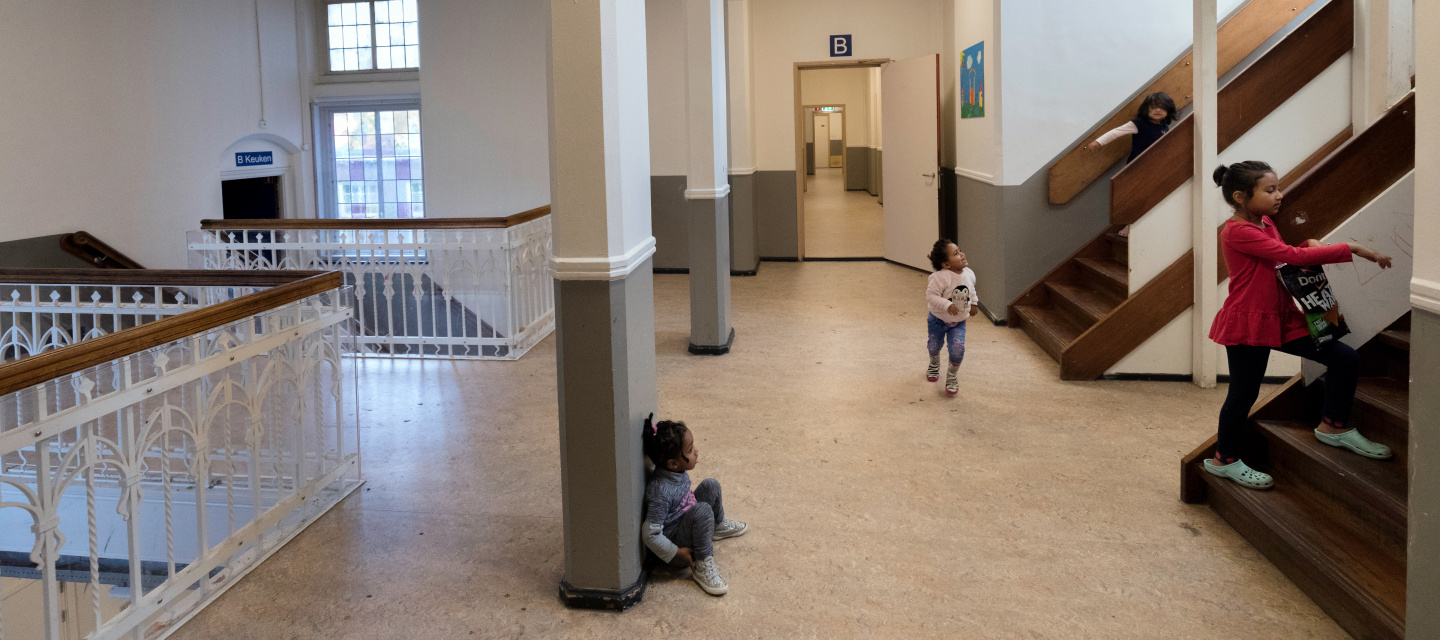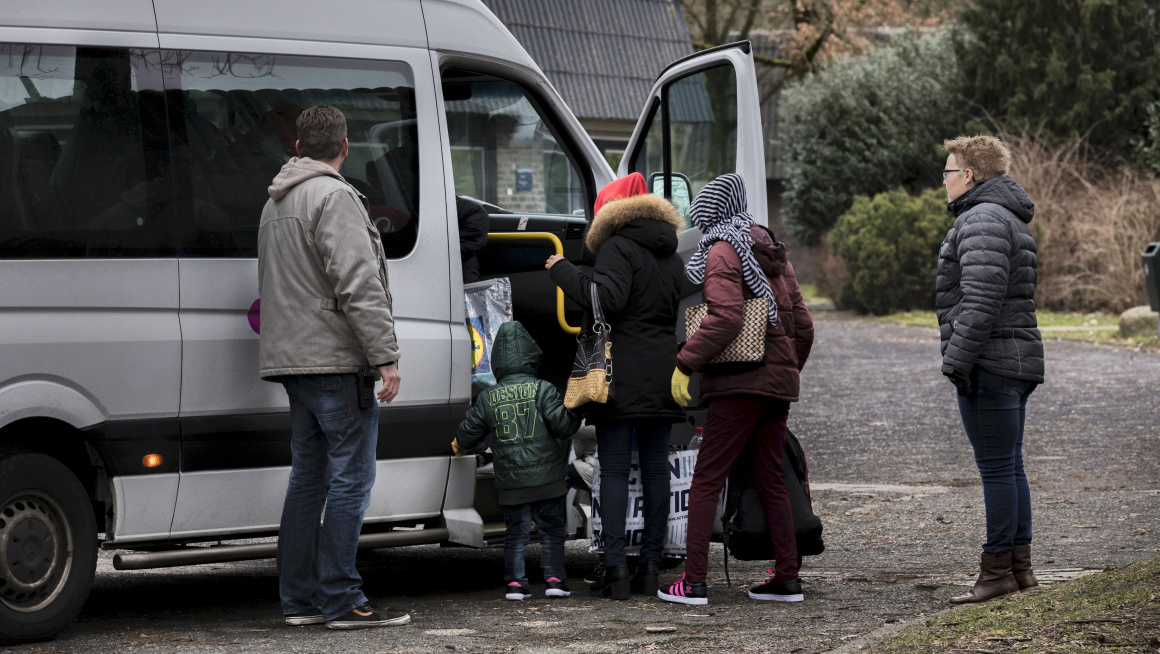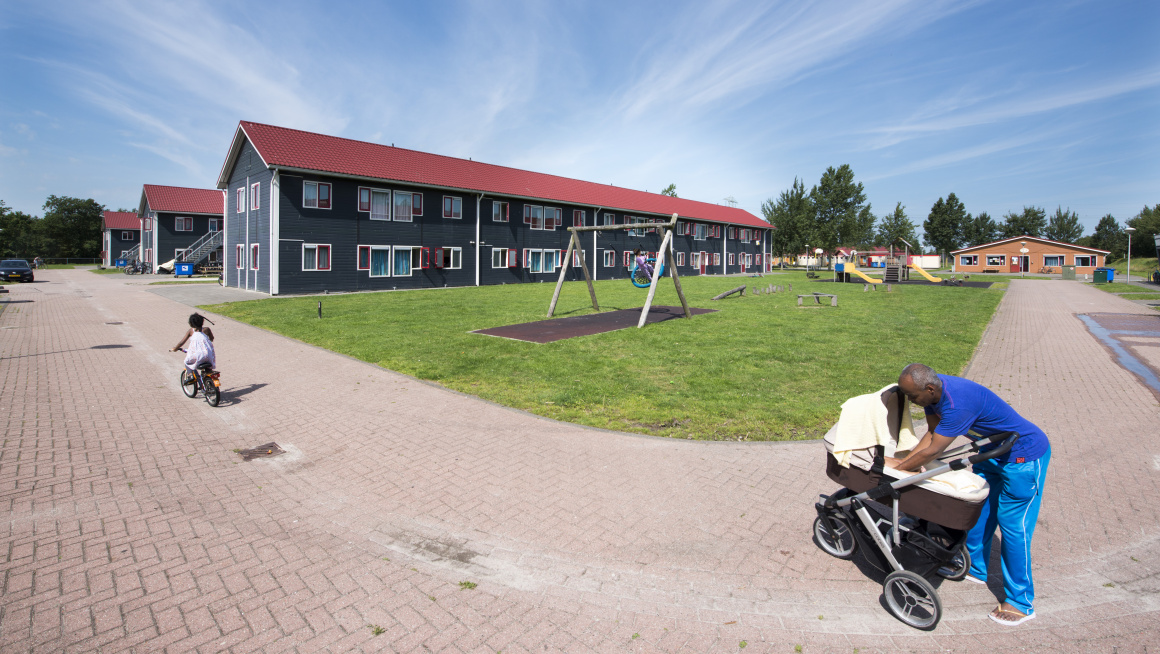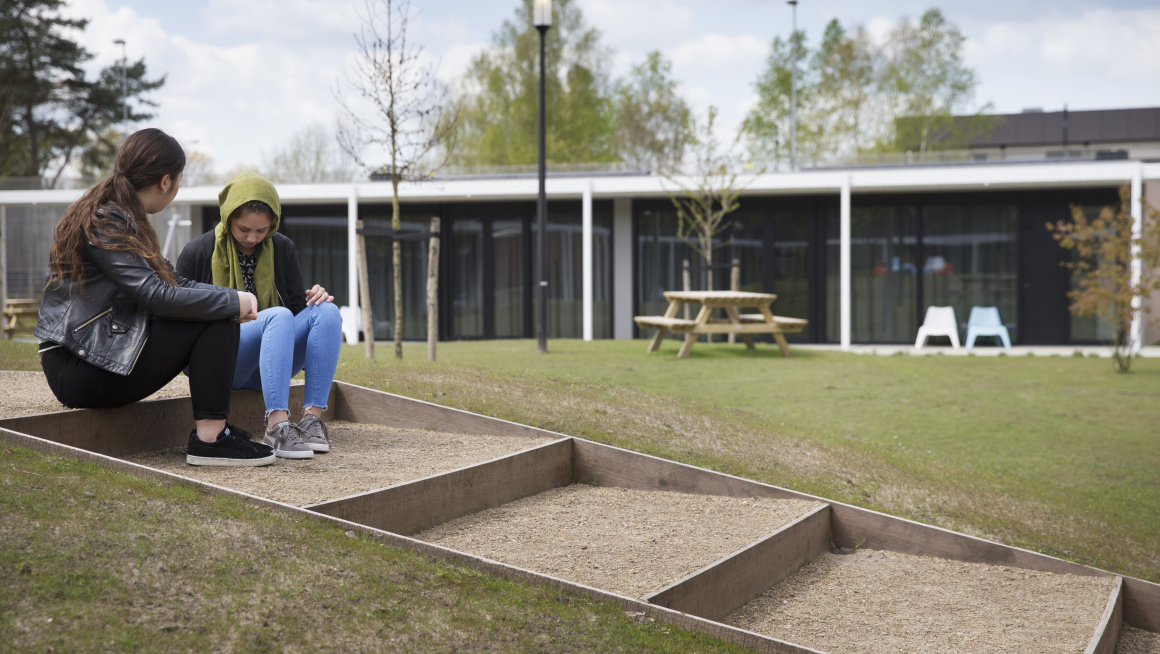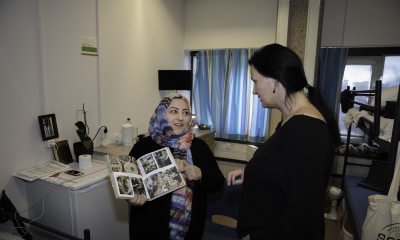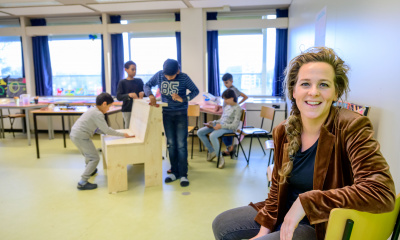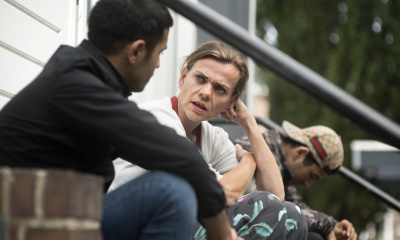Freedom-restricting centre
Asylum seekers who have exhausted all legal means and who are no longer entitled to reception in a reception centre can get shelter in the 'freedom-restricting centre' (vbl) in Ter Apel, but only if there is a prospect of departure within 12 weeks. In no more than 12 weeks, they prepare themselves for departure from the Netherlands. The Repatriation and Departure Service (DT&V) supports them in this. We also support them in their preparation for departure and their future in the country of origin.
In the freedom-restricting centre, the facilities are austere and the house rules are stricter than in a regular reception centre. Residents must report 5 days a week to the COA and the aliens police (AVIM) and remain within the borders of the municipality. This makes them available for interviews and activities focusing on return. They do not receive a living allowance like in a regular reception centre, but they do receive an allowance for food. Children also receive a living allowance. The number of activities is limited: adults take the Future training and can do volunteer work in the centre.
Family centre
If families with minor children have exhausted all legal means, they move from the freedom-restricting centre to a ‘family centre’ if necessary. This is when they are unable to achieve their departure within 12 weeks and have no other shelter. Children below the age of 18 remain entitled to shelter even after rejection of the asylum application, this includes their parents and siblings. The Repatriation and Departure Service (DT&V) supports the families in their departure from the Netherlands. The guidance and support by the COA are also focused on return and a future in the country of origin.
The facilities and house rules are just as austere and strict as in the freedom-restricting centre. The idea is that the families leave the Netherlands as quickly as possible. For adults, we offer a limited number of activities: the Future training and volunteer work in the centre.
For children, the facilities are the same as in a regular reception centre. They go to school, there's a playground and there’s a range of sports, games, arts and music activities.
Closed family facility in Zeist
The closed family facility in Zeist, also called the 'gvv', is a detention centre of the Custodial Institutions Agency (DJI). Here, families with minor children and unaccompanied minors (UAMs) stay if they are forced to leave the country. They stay here in aliens detention up to 14 days, so that they cannot evade their removal. This concerns 3 groups:
- families with minor children who have been detained on the basis of Section 59 or 59a of the Aliens Act 2000 and are ready for removal
- families with minor children who have not been given access to the Netherlands after screening by the IND and have been placed in detention on the basis of Section 6 of the Aliens Act 2000
- unaccompanied minors who have been placed in detention on the basis of Section 59 of the Aliens Act 2000
In the closed family facility, staff of the DJI and the COA support asylum seekers in their preparations for forced return. The location has been designed to be child-friendly: spacious and green, with play facilities and activities for children. UAMs and children can go to school here.
